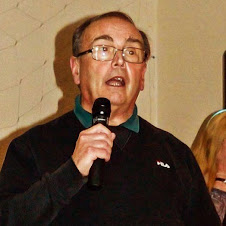I don't expect to get many readers for this post. It deals with what I have called a recurring theme: the murder of innocent people by violent mental health patients. I have written a number of posts on this issue in past years and, out of compassion for the victims and their families, highlighted the failings of the mental health care system and the lenient way in which the perpetrators are treated. This case is slightly different, in that both victim - in this case James Nash - and perpetrator, Alex Sartain, are both now dead.
The actual murder happened on August 5 of last year in the village of Upper Enham, near Andover. Mr Nash and Sartain were neighbours, and it seems that Sartain, who had mental health issues, had developed a delusional-driven hatred of Mr Nash. The details of the murder, as in every instance, are chilling in the extreme. As the Daily Mail, in its report of the recent inquest, says:
"James Nash, 42, was shot in the front garden of his home in the hamlet of Upper Enham, near Andover in Hampshire at 3pm on August 5, 2020. His neighbour Alex Sartain, 34, used a home-made double-barrelled shotgun and then repeatedly stamped on the parish councillor's head, causing him fatal head injuries, the Winchester inquest was told."
Added to the horror of this event was the fact that Mr Nash's widow, Dr Sarah Nash, saw most of this attack, and was lucky to escape to a neighbour's house when it seemed that Sartain was about to attack her. Sartain fled the scene on a motor bike, only to meet his end after driving his bike at a police officer sent to the scene and filling up with petrol at his father's motorcycle repair shop. He then took off and, as the BBC says:
"A police helicopter tracked Mr Sartain, who was seen waving at their camera, and recorded him reaching a speed of 161mph. Mr Sartain's motorbike clipped a car travelling in the opposite direction on the Doiley Hill stretch of the road, causing him to lose control and smash into a tree."
Once again, I am amazed at the mental health record of the killer; it has been like this for me many times before. Sartain's father said that his son had developed a fixation about James Nash:
'He was always on about James Nash, saying that James Nash had something to do with Putin and the spread of Covid"Last year,
The Guardian reported that Tony Bennett ( a bodyshop and restoration business owner) said that he had spoken to Sartain the day before the murder:
“I saw Alex the day before and he pointed at Mr Nash’s house and said, ‘They are trying to get me sectioned. Because Mr Nash used to work in aerospace, Alex got it in his head that this guy works for the government. He had it in his head that he was being spied on.”
Sartain had an extensive criminal record. He had convictions for theft, assault and drug use. Besides this, like others of this type, such as Thomas Mair, the killer of Jo Cox, MP, he had an interest in Nazism. As the Daily Mail says:
"Mr Sartain 'liked' various Nazi pages on his Facebook, including one dedicated to Horst Wessel, a leader of the stormtroopers in Berlin. Wessel was made Nazi martyr by propaganda minister Joseph Goebbels after he was killed in 1930."He also wrote on social media that, "I come with a warning label". One familiar feature of this type of case rings true - the fact that Sartain was detained under the Mental Health Act in September, 2019 and released in April, 2020. John Sartain, the killer's father, said:
"There was no hint anything like this was going to happen."I could comment acerbically here, but there's really no need.
What's needed from me is to express sympathy for the family of James Nash; no words can compensate for their loss or comprehend what they are still going through. They are not alone, as I have commented repeatedly, too many mental health murderers have been released "cured", only to kill, as was Sartain, sometimes to kill again, like Nicola Edgington. Too many families are grieving already because of these people; too many dangerous individuals are walking free.
James Nash was a children's author and a dedicated local councillor. Perhaps the best tribute to this man was made by the council leader, Phil North, who told The Guardian:
“James is such a kind-hearted individual who cares deeply for his community. He is also a talented children’s author and illustrator and I was extremely touched last year when one of the dedications in his latest book was to my newborn daughter.”As for Alex Sartain, perhaps the less said the better. Two families are bereaved; only one of these families is in mourning for a worthwhile member of society.








